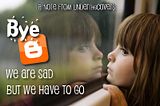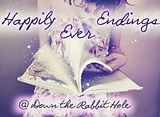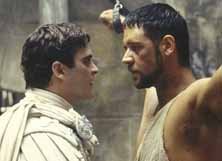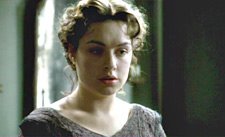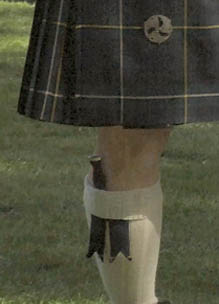This post is about prequels. Do you consider a prequel the new book #1 of a series? How about a movie?
Movies. Should a new watcher go prequel first?
There are now a whole lot of Star Wars movies out. Should a new viewer watch them in chronological story order, starting with prequels? Or is it still more fun to watch them in the order they came out, with the prequel adding dimension to the main story?
I was thinking about the Terminator movies here, too, trying to decide which technically goes first, until I remember mindf&%$ing myself years ago on that same subject. John Conner sends his friend back in time to protect his mother from Arnold Schwarzenegger, and then his friend and his mom sleep together and his friend becomes his father...then blood starts dripping out my ears. Terminator has no beginning!
But there is a definite chronological prequel to Star Trek--namely, the fabulous movie that came out last summer. It would be weird to watch that Star Trek movie before you watched the classic episodes. But that's more an eras thing. (sorry about the Chris Pine pic. It's from my Amanda guest post yesterday. I guess I'm too lazy to get a new one.)
The second Godfather movie went into the Godfather's childhood, and actually, my mother in law actually edited her own version (in the VHS days!) so that she had a Godfather saga in total chronological order, starting with young Vito Corleone on the rooftops. I think that's totally funny of her, but sort of cool. But how would that change a first-time viewer's experience of the story?
The second Godfather movie went into the Godfather's childhood, and actually, my mother in law actually edited her own version (in the VHS days!) so that she had a Godfather saga in total chronological order, starting with young Vito Corleone on the rooftops. I think that's totally funny of her, but sort of cool. But how would that change a first-time viewer's experience of the story?
Why I was thinking about this in the first place.
I was wondering the other day if anybody read Men of the Otherworld before Bitten. These are two of my fave-ever books, both by Kelley Armstrong. Werewolves. So amazing. Bitten came out in 2004 or something. It's sort of werewolf Elena's story, and Men trickled in as shorts on Armstrong's site before being compiled into a book in 2009. The shorts are all what happened way before Bitten. A lot of Men centers around Clay, who, I'll just say, is linked to Elena, and the stories about Clay really add a lot of richness to Bitten, but is it richness in hindsight? Would you get more good richness by reading Men first? Or is it best to read them in the order that Kelley Armstrong released them?
Sometimes a character's entrance is so powerful for me, and this wasn't an exception with Clay. One of the most enduring images in Bitten, for me, is that of Clay waiting by the gate when Elena arrives at Stonehaven (werewolf pack-leader Jeremy's mansion). When you read it, you don't even know who Clay is. He's this guy waiting for her.
 What's interesting is that if you read Men of the Otherworld first, you get this whole saga of Clay as a feral, abandoned, but intelligent child werewolf, struggling in the wild, and later, through all kinds of pack and family trouble. A good-hearted underdog. You'd be on Clay's side.
What's interesting is that if you read Men of the Otherworld first, you get this whole saga of Clay as a feral, abandoned, but intelligent child werewolf, struggling in the wild, and later, through all kinds of pack and family trouble. A good-hearted underdog. You'd be on Clay's side.
In this passage, Elena's cab approaches the gates.
A figure sat on the grass, ankles crossed as he leaned against the stone wall. Clayton.The driver squinted, trying to make out the house in the dark, as blind to the brass nameplate as to the man waiting by the gate. The moon had gone behind a cloud and the coach lamps at the end of the drive were unlit."I'll get out here," I said."Uh-uh. No can do, miss. It's not safe. There's something out there."I thought he was referring to Clay. "Something" was an apt description.
Clay seems so menacing in this first view. I really, really didn't like him. Then, a paragraph or so later:
The driver's eyes went to the side window and he jumped in his seat. "Jesus!"Clay had left his post at the gate and materialized at my window. He stood there, watching me, a slow grin lighting his eyes. He reached for the door handle. The driver put the car in gear."It's okay," I say with deep regret. "He's with me."
I remember so badly wanting her to get away from him! I trusted and liked Elena by this point in the book, and definitely did not like Clay. Anyway, Elena then gets out of the cab (before Clay can "make a scene") and starts walking up the lane to the house.
I didn't dare ask Clay what was going on. That would mean engaging him in conversation, which would imply that I wanted to talk to him. With Clay, even the simplest overtures were dangerous. As much as I wanted to know what was happening, I'd have to hear it from Jeremy.
 What's interesting is that if you read Men of the Otherworld first, you get this whole saga of Clay as a feral, abandoned, but intelligent child werewolf, struggling in the wild, and later, through all kinds of pack and family trouble. A good-hearted underdog. You'd be on Clay's side.
What's interesting is that if you read Men of the Otherworld first, you get this whole saga of Clay as a feral, abandoned, but intelligent child werewolf, struggling in the wild, and later, through all kinds of pack and family trouble. A good-hearted underdog. You'd be on Clay's side.
But here in Bitten, when Elena treats Clay so harshly, if I'd read it after Men, I might be like, WTF does Elena have against Clay? I wonder if it would put me off of Elena, until I got their whole story. Or would it?
I'm rambling. Maybe it doesn't matter. Maybe when a writer builds a huge world of books, as Armstrong has, she loses a bit of control over how people experience it. You don't experience people chronologically, outside of family, usually. In fact, I think in life, people experience stories that aren't their own out of chronological order...you meet somebody, become friends, then learn about their history.
Anyway, prequels. What do you think?
When a prequel comes into being, covering the time before an established series, should that be book #1 to a new reader? Is it smart to read it first? Or not? Oh, and if you haven't read either of these two books? Oh, do! In whatever order.
WIN! You can win lots of nifty prizes, including a copy of Mind Games if you so choose, at Amanda's. Stop by and enter and wish her a happy b-day!
You can also win a copy of In and Out at Chris' place, Stumbling over Chaos!
You can also win a copy of In and Out at Chris' place, Stumbling over Chaos!

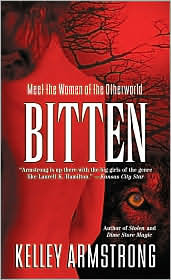






















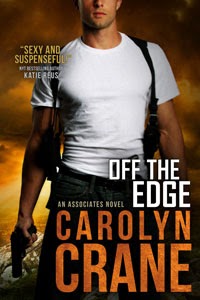


















.jpg)

.jpg)
























































































